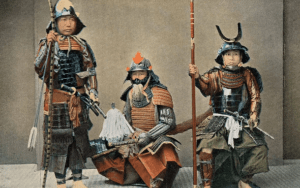What is the Code of Bushido?

The Code of Bushido is an old code, originating in Japan during the feudal period which lasted from the 12th to the 19th century. It was followed by the samurai warriors who were the ruling class of Japan during that time. The principles of Bushido have been passed down through generations and are still considered an important part of Japanese culture and heritage today. While the specific interpretation and application of the code may have evolved over time, the fundamental principles of the Code of Bushido have remained relatively unchanged since its inception.
The Code of Bushido emphasizes loyalty, honor, bravery, and self-discipline. It also stresses the importance of self-control, respect for others, and the mastery of martial arts as a means of achieving spiritual enlightenment.
The seven principles of Bushido are:
Rectitude (義, gi) – moral and ethical correctness.
Courage (勇, yū) – bravery in the face of adversity.
Benevolence (仁, jin) – kindness, compassion, and empathy.
Respect (礼, rei) – politeness and courtesy.
Honesty (誠, makoto) – sincerity and truthfulness.
Honor (名誉, meiyo) – dignity, reputation, and respectability.
Loyalty (忠義, chūgi) – devotion and allegiance to one’s lord, family, and country.
These principles were intended to guide the behavior and actions of the samurai, and they are still considered an important part of Japanese culture and heritage today.
Thanks for reading.
Gert
